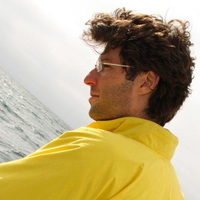Seth Kimmel
Columbia University, Latin American and Iberian Cultures, Faculty Member
- Medieval & Early Modern Iberia, Comparative Literature, Early modern Spain, Spanish Literature of the Golden Age, Secularisms and Secularities, Comparative Religion, and 17 moreMaterial Culture Studies, Renaissance Studies, Renaissance Humanism, French Renaissance Literature, Arabic Literature, Spanish Scholasticism, Mediterranean Studies, Asociacion Internacional De Hispanistas, Early Modern Intellectual History, Religious Conversion, Literatura española del Siglo de Oro, Moriscos, Medieval History, Early Modern History, Medieval Spain, Muslim and Jewish History, and Early Modern Spanish literatureedit
Research Interests: Philology, Comparative Religion, History, Comparative Literature, Jewish Studies, and 27 moreSemitic languages, Early Modern History, History of Religion, Renaissance Studies, Romance philology, Legal History, Inquisition, Jewish History, Medieval Iberian History, Mediterranean Studies, Early Modern Europe, Religious Conversion, Islamic Studies, Al-Andalus, Moriscos, Islamic History, Republic of Letters (Early Modern History), Tolerance, Heresy and Inquisition, Medieval Spain, Historia, Historia Medieval, Conversos, Spanish Literature of the Golden Age, Catholic Church History, Filología Hispánica, and Historia Moderna
Essay in: After Conversion: Iberia and the Emergence of Modernity, 336-57. Edited by Mercedes García-Arenal. Leiden and Boston: Brill, 2016.
